#aristotle john
Text
honestly for me one of the scariest things about Supernatural is the seeming inevitability of the cycle of violence, John knows this is an appalling way to raise a child but he does it anyway, Sam gets away for a few years only to return loving the job, Dean does to Jack the same things John did to him. and a sizable chunk of that is Chuck forcing them to become the worst versions of themselves but it’s terrifying how they can end up being the very thing they swore never to become
#dfvq liveblog#dfv queue#dfvq spn#spn5x13#cycle of violence#fuck a chuck#this house is a fucking nightmare#forced to live bad writing#cursed by the narrative#john winchester’s a+ parenting#dean studies#cw child abuse#aristotle checking his nails smugly in the distance#imagine taking sam seriously as a character#you used me for character development
91 notes
·
View notes
Text

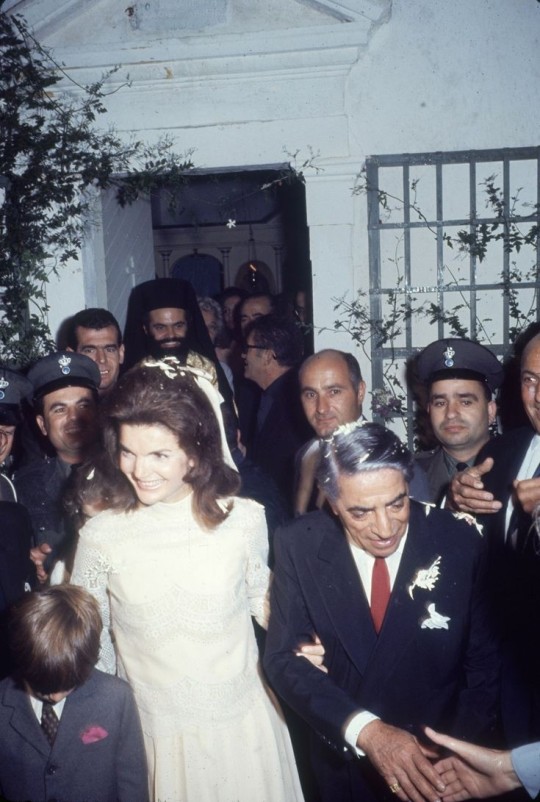

On October 20, 1968, Jackie Kennedy married Aristotle Onassis on his private Greek island of Skorpios in the Ionian Sea.
7 notes
·
View notes
Note
I dislike Onassis so it brings me comfort that Jackie is buried next to jfk instead of him (and yes I know they were both shit husbands but it’s very clear she loved jfk more).
Also sometimes I watch documentaries about Onassis and they go on about how rich he was and they act like the Kennedys were broke when Joe Sr was like in the top ten of the richest men in the 1950s, yes they were a big family but Jackie also liked JFK for his wealth and guess who paid for that very expensive wardrobe? They did. It’s just weird.
I also think it just makes the most sense. Onassis' family, especially his daughter didn't like Jackie and I don't think they would have allowed her to be buried next to Onassis because everyone knew that their marriage was not for love alone, it was a utilitarian and financial partnership. Jackie never took off her wedding ring that Jack gave her even though she remarried and had a long relationship with Maurice. It would feel wrong for her to be buried away from her true love and her two babies.
#anon#ask#answered#jackie kennedy#jacqueline bouvier kennedy#john f kennedy#jfk#aristotle onassis#kennedy family#the kennedys
8 notes
·
View notes
Text
A central difference between market economies and non-market economies is the ways in which decisions are made and enacted. In market economies, agents by necessity respond to the relative prices of goods, and their choices are constrained and regulated by the movements in the exchange values of different goods. The exchange value of objects becomes a common unit through which decisions are made. The shifts in exchange values are the unintended consequence of the collective outcomes of individual actions of agents. Hence, they are independent of any social or ethical ends that might be held either individually or in common. Market economies are in this special sense disembedded economies: decisions are not constrained directly by social custom and ethical goals, but rather respond to a system that proceeds independently of these. The economies are amoral. In contrast, in non-market economies, economic decisions are constrained directly by social custom and needs, and operate directly in terms of the nature of the goods involved.
The observation that there is such a difference between market and non-market economies is one that goes back to Aristotle. This very general difference is also the source of an ancient set of objections to market economies that also go back at least as far as Aristotle: precisely because in market economies, economic decisions are not constrained directly by ethical considerations the economies are ethically indefensible.
John O’Neill, The Market: Ethics, Knowledge, and Politics
26 notes
·
View notes
Note
have you ever read aristotle and dante discover the secrets of the universe? its quite cool :)
I have! I haven't read the sequel yet, but I intend to at some point. I'll have to borrow it from my sister; I own the first book and she owns the second.
I thought it quaint and enjoyable, a sweet quick read. Of course I loved having queer mexican american main characters, as I'm a queer mexican american. Though I grew up a little to the left geographically, so some differences there--the decade as well. Ari had an amusing internal voice and narration given how dry and morose he was.
Not what I usually read, but pleasant nonetheless! I think I'll have fun with the sequel too :)
#aristotle and dante discover the secrets of the universe#aaddtsotu#damn what an acronym#quil's queries#nonsie#we also read some snippets of it in a chicano studies class I took once#which. I think was very much influenced by the fact the professor was a gay mexican american from texas as well#we read a handful of queer mexican american writing excerpts#there's one in particular that was like. from the 1970s or something? maybe not but point was it was older queer literature#but I can't recall the name#just the feeling#someting with night in tthe title?#FOUND IT!!!#city of night by john rechy#ty internet keyword search <3#i was a little off it was 1960s
5 notes
·
View notes
Text
Literary theorists being AHs to women and PoCs
‘cause if I have to suffer, then you should also know how much of an AH these people are, so you can examine if their theories are even worth believing or if you SHOULD pay attention to their blind spots instead of saying it’s irrelevant to literary discussion. Personally, I think the fact they are unwilling to mention PoCs, particularly Black people and willing to actively dump on women is very relevant to current academic discourse. You can’t ignore Kant’s views on women, and see that the majority of the people who won in the end were people who showed hatred towards women.
Robert Scholes being an AH, Page 26-page 28 (Hilarious, but also homophobic and misogynistic) For context, EM Forster is gay, which makes this really homophobic.
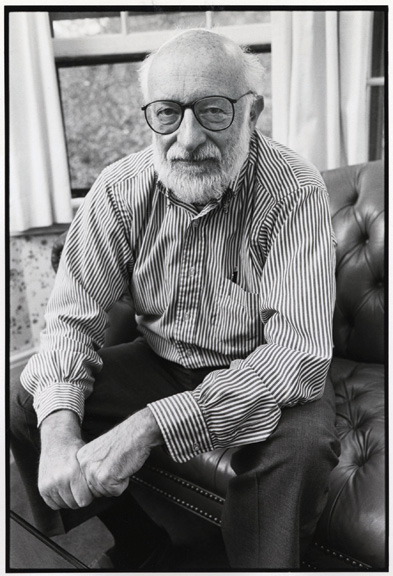
Picture credit: https://www.brownalumnimagazine.com/articles/2017-03-03/memories-of-bob-scholes
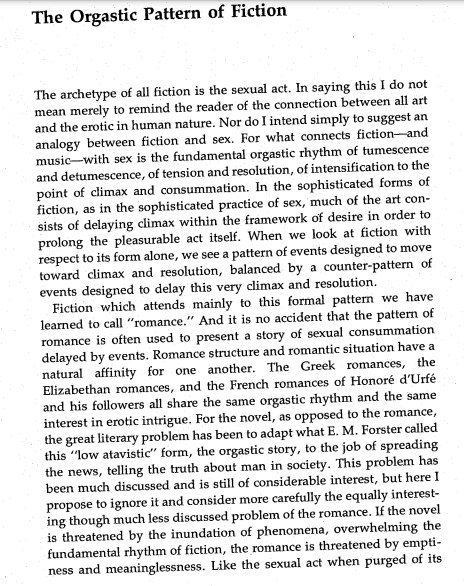
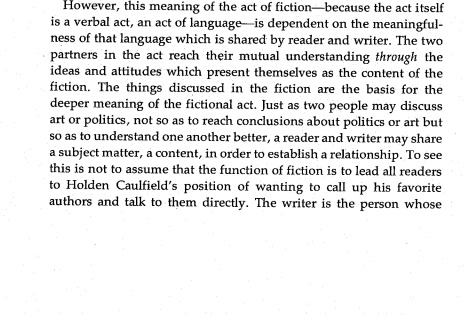
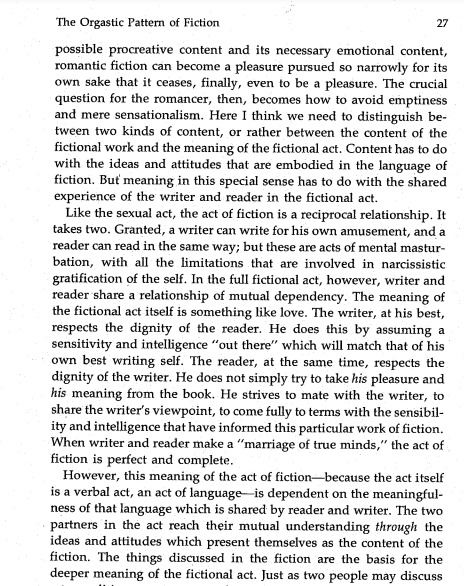
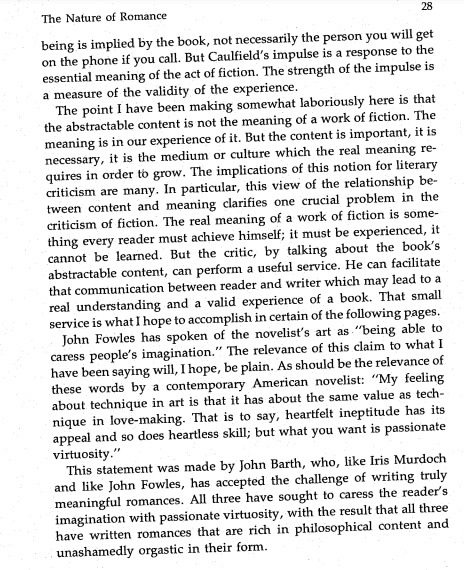
‘Cause you see folks, the only decent writers in the world are men, cishet men. (notice the sharp sarcasm here).
E.M. Forster on Gertrude Stein (From Aspects of a Novel, a series of lectures he gave)
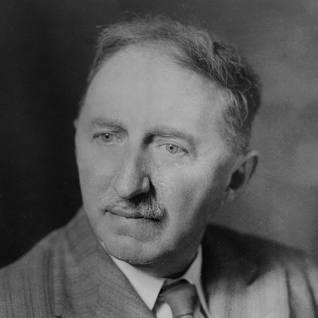
Credit: Getty Images https://encrypted-tbn0.gstatic.com/licensed-image?q=tbn:ANd9GcSjNW-FA-n5bkXFk2MFmMGMcBy1SJtQj185hrMceQN_8rK2L-6f2cu7Ct-PooBt8M6Mt7ffTDt5SPHpj00
https://www.gutenberg.org/cache/epub/70492/pg70492-images.html

Granted, a Modernist (and gay himself, openly so at the time he gave this lecture), but still, the dumping on Gertrude Stein seems to be a tradition that extends to other people afterwards (Rowe did it sideways, Lajos Egri, directly). Seriously? Dump on the lesbian Jew trying to encourage ways to describe TRAUMA. OMG, we shouldn’t talk about trauma.
But I disagree heartily--we have entire story structures devoted to dreams that play with sense of time and reality *because* of Gertrude Stein. I mean, how could you conceivably get Inception without Gertrude Stein’s theories of how to move language and time? Besides that, you have Dream Diaries (Japanese), Dream Record (First Chinese then Korean--not imported into Japan because there was a war), and then the whole of Dream Time from Aboriginals which predate her. Non-linear storytelling has and can work--but you need thematic plotting to be stronger and tone plotting to really be tight (pacing helps, but isn’t as critical as the other two). Thank the Modernists for the European white version. I mean, Magic realism, anyone???
If you want to find ways to break linear time and describe trauma itself, and the feeling of missing time--Modernists are your best bet to find techniques to get you there. (Kinda Post Modernists, though I resent the focus on readers a lot--I heartily disagree, BTW, that Structuralists and Post Modernists are the same thing... as argued in this paper here: https://www.sciencedirect.com/science/article/abs/pii/B0080430767039516.
Post Modernists tried to find further ways to break the rules and structure by bending to the reader.
Structuralists tried to impose a bunch of rules and binary. Like say, the panopticon and prison system/School system. There’s rigidity everywhere with Structuralists and Eurocentricism.) Or as the Raw and Cooked put it, a binary of acceptable and unacceptable, when some cultures don’t work off the Bible. So I think this paper here: https://www.sciencedirect.com/science/article/abs/pii/B0080430767039516
is more likely.
John Gardner, The Art of Fiction for Young Writers, published 1983
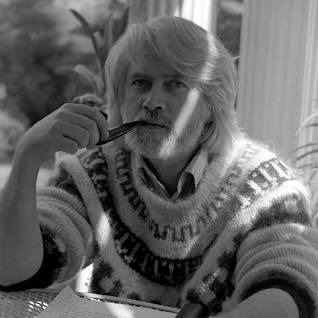
Picture credit: https://blog.bookstellyouwhy.com/john-gardner-and-the-art-of-fiction
No one is surprised that its all men mentioned, right?
But what makes ignoramuses bad writers is not just their inexperience in fair argument. All great writing is in a sense imitation of great writing. Writing a novel, however innovative that novel may be, the writer struggles to achieve one specific large effect, what can only be called the effect we are used to getting from good novels. However weird the technique, whatever the novel’s mode, we say when we have finished it, “Now that is a novel!” We say it of Anna Karenina and of Under the Volcano, also of the mysteriously constructed Moby-Dick. If we say it of Samuel Beckett’s Watt or Malone Dies, of Italo Calvino’s The Baron in the Trees, or Kobo Abe’s The Ruined Map, we say it because, for all their surface oddity, those novels produce the familiar effect. It rarely happens, if it happens at all, that a writer can achieve effects much larger than the effects achieved in books he has read and admired. Human beings, like chimpanzees, can do very little without models. One may learn to love Shakespeare by reading him on one’s own—the ignoramus is unlikely to have done even this—but there is no substitute for being taken by the hand and guided line by line through Othello, Hamlet, or King Lear. This is the work of the university Shakespeare course, and even if the teacher is a person of limited intelligence and sensitivity, one can find in universities the critical books and articles most likely to be helpful, the books that have held up, and the best of the new books. Outside the university’s selective process, one hardly knows which way to turn. One ends up with some crank book on how Shakespeare was really an atheist, or a Communist, or a pen-name used by Francis Bacon. Outside the university it seems practically impossible to come to an understanding of Homer or Vergil, Chaucer or Dante, any of the great masters who, properly understood, provide the highest models yet achieved by our civilization. Whatever his genius, the writer unfamiliar with the highest effects possible is virtually doomed to search out lesser effects.
Gardner, John (2010-05-20T23:58:59.000). The Art of Fiction . Knopf Doubleday Publishing Group. Kindle Edition.
OMG, give this guy a prize, he managed to mention a Japanese man Kobo Abe. /s https://literariness.org/2019/04/15/analysis-of-kobo-abes-novels/ But then fails to mention the names of the authors of some of the novels he’s talking about (I’m literally begging Writer’s Digest, Knopf, etc to force these people to give better citations)
The closest he gets to noting a Black person is noting American Jazz on the page where Chapter 2 starts, and then fails to mention Jazz musicians. No, I’m serious.
What makes a person an AH? The inability to mention a single work in 1983 by a female author?
Though the fact is not always obvious at a glance when we look at works of art very close to us in time, the artist’s primary unit of thought—his primary conscious or unconscious basis for selecting and organizing the details of his work—is genre. This is perhaps most obvious in the case of music. A composer writes an opera, a symphony, a concerto, a tone poem, a suite of country dances, a song cycle, a set of variations, or a stream-of-consciousness piece (a modern psychological adaptation of the tone poem). Whatever genre he chooses, and to some extent depending on which genre he chooses, he writes within, or slightly varies, traditional structures—sonata form, fugal structure, ABCBA melodic structure, and so forth; or he may create, on what he believes to be some firm basis, a new structure. He may cross genres, introducing country dances into a symphony or, say, constructing a string quartet on the principle of theme and variations. If he’s looking for novelty (seldom for any more noble reason), he may try to borrow structure from some other art, using film, theatrical movement, or something else. When new forms arise, as they do from time to time, they rise out of one of two processes, genre-crossing or the elevation of popular culture. Thus Ravel, Gershwin, Stravinsky, and many others blend classical tradition and American jazz—in this case simultaneously crossing genres and elevating the popular. Occasionally in music as in the other arts, elevating popular culture must be extended to mean recycling trash. Electronic music began in the observation that the beeps and boings that come out of radios, computers, and the like might sound a little like music if structure were imposed—rhythm and something like melody. Anything, in fact—as the Dadaists, Spike Jones, and John Cage pointed out—might be turned into something like music: the scream of a truck-tire, the noise of a windowshade, the bleating of a sheep.
Gardner, John (2010-05-20T23:58:59.000). The Art of Fiction . Knopf Doubleday Publishing Group. Kindle Edition.
Iunno, is it glaring to you? It’s glaring to me. Avoid talking about Black people challenge. I can name at least a few off the top of my head. Dizzy Gillespie? Billie Holiday? Ella Fitzgerald? And then he mentions white people before then? I’m groaning.
And that’s the thing, particularly about Black authors/Black people, they are either not mentioned by name, but their work is--WTF, or totally skipped, probably because the whole of Black literature goes against these white men’s structuralism, and postulations. On one hand, I’m glad they left them alone, but on the other, the saying this is the only way, while glaringly missing the obvious really is sickening.
As for dumping on women--well... should we go back to Aristotle being an ass and starting the whole anti-choice campaigns because somehow Aristotle is Jesus, even though Jesus didn’t say anything about Ensoulment at conception? And then indoctrinated white women trying to rescue Aristotle from taking the axe because all of his scientific ideas were wrong? (Just axe him--he was popular with the Victorians for a reason--he was a misogynistic asshole and that reinforced their worldview very well.) (And if you think I don’t have references for the anti-choice statement... oh wait for it... I so have it)
https://en.wikipedia.org/wiki/Ensoulment
Wikipedia, but I found scholarly articles too--not sure you want to be buried with that. Aristotle is not Jesus. !@#$ And Aristotle thought women got their soul later than men, because, as I said, royal asshole, to the point I want to do a whole long rant about how much of an irrelevant ah he was.
#fuck misogyny#misogyny in academia#anti-blackness in academia#story structure and misogyny#structuralists#em forster#robert scholes#John gardner#aristotle is a misogynistic ah
3 notes
·
View notes
Text
New JFK assassination theories:
Aristotle Onassis paid Oswald to do it so he could marry Jackie.
Bobby Kennedy was the second gunman behind the grassy knoll (maybe he was jealous of his brother).
Richard Nixon was somehow behind the assassination (either he hired Oswald or he was the second gunman) because he wanted to be president and believed Kennedy had taken what was rightfully his.
Nikita Khrushchev was the second gunman (unlikely, but never underestimate what you can get away with when you are 5’3”).
#or maybe his head just did that#let the record state I do not subscribe to any of the herein mentioned conspiracy theories#assassins musical#john f kennedy#lee harvey oswald#aristotle onassis#jackie kennedy#bobby kennedy#richard nixon#nikita khrushchev
17 notes
·
View notes
Text
This won't be my last post about pride month, because it's an entire ass month, so yeah. Anyway. Happy pride to all my ships:
Zarry
Ari and Dante
Johnlock
Ineffable Husbands
David and Patrick
Alex and Henry
Narlie
Drarry
Merthur
#oh i adore all of them :(#zayn#harry styles#aristotle and dante discover the secrets of the universe#aristotle and dante dive into the waters of the world#aristotle mendoza#dante quintana#bbc sherlock#john watson#sherlock holmes#good omens#anthony j crowley#aziraphale#schitt's creek#david rose#patrick brewer#red white and royal blue#alex claremont diaz#henry fox mountchristen windsor#heartstopper#nick nelson#charlie spring#harry potter#draco malfoy#bbc merlin#merlin#arthur pendragon#god the amount of tags#ship things!!!
4 notes
·
View notes
Text
Sam: "Jack's scared to death of who he is, and he's scared of you."
the hypothetical therapist they'll never get could spend an entire 3 sessions on just this sentence alone, like having Sam say this to Dean is...the LAYERS
#dfvq liveblog#dfv queue#dfvq spn#spn13x2#quotes#sam winchester#this house is a fucking nightmare#psychoanalysis for everyone#cycle of violence#john winchester's a+ parenting#aristotle checking his nails smugly in the distance
9 notes
·
View notes
Note
Who would you put in an American statue garden? Assume no limit for how many
all the best presidents (i won't name them all but just to list a few: washington, adams, j. q. adams, jefferson, madison, monroe, fdr, teddy roosevelt, lincoln, etc), franklin, alexander hamilton, friedrich list, henry clay, henry carey, samuel adams, ethan allen, thomas young, john jay, james wilson, gouverneur morris, christopher columbus (tbh i'm tempted to include figures like leif erikson and prince madoc because even though they were never americans, like columbus, there is a mythopoetic/cultural value), lafayette, john winthrop, cotton mather, nathanael greene, friedrich wilhem von steuben, nathan hale, johnny appleseed, emperor norton, robert e. lee, william tecumseh sherman, daniel boone, lewis and clark, sacagawea, davy crockett, emerson, thoreau, walt whitman, longfellow, hilda doolittle, emily dickinson, nikola tesla, einstein, eli whitney, abigail adams, edgar allen poe, john brown, herman melville, butch cassidy, wyatt earp, doc holliday, wild bill hickok, sundance kid, john henry, andrew carnegie, nathaniel hawthorne, washington irving, horace mann, john dewey, wernher von braun, j. robert oppenheimer, john marshall, wiliam penn, junipero sera, john d. rockefeller, clara barton, fanny wright, thomas edison, alexandar graham bell, ezra pound, kerouac, william faulkner, steinbeck, hemingway, dolley madison, john muir, annie oakley, lovecraft, eleanor roosevelt, john browning, samuel colt, elvis presley, claude shannon, henry miller, kanye west, stanley kubrick, john von neumann, thorstein veblen, edward bellamy, henry ford, cornelius vanderbilt, betsy ross, black hawk, sitting bull, tecumseh, hart crane, h. l. mencken, tennessee williams, charles sanders peirce, william james, quine, hilary putnam, richard rorty, charles hartshorne, walt disney, mark twain, etc.
#this list probably isn't exhaustive#well it definitely isn't#but i tried to be pretty thorough#also in this hypothetical statue garden#i would probably make a section dedicated to non-americans#that i consider honorary americans#or people who i believe are influential or important to the american tradition#or just people i consider great and worthy of admiration#like cicero and cato and aristotle and homer and aeschylus and hercules#or john milton or cromwell or napoleon#or machiavelli or montesquieu#yeah i know you said there could be no limit#but i could probably go on for a long time#so i'm just gonna have to leave this list how it is for now
9 notes
·
View notes
Note
Diana thinking jfk was handsome and thinking Onassis was a toad is just perfection.
she did not lie
#anon#ask#answered#princess diana#diana princess of wales#john f kennedy#jfk#aristotle onassis#kennedy family#the kennedys
8 notes
·
View notes
Text
The Good Son: JFK Jr. and the Mother He Loved by Christopher Andersen #Kennedys #Biography #BookReview #AudiobookReview
It has been a while since I've read a book about the Kennedys. I decided to pick up one about #JacquelineKEnnedyOnassis and her son, #JFKJR. It was an interesting way to look at the family, the connection between mother and son. #Johnfkennedy #bookreview
Critically acclaimed author Christopher Andersen is a master of celebrity biographies—boasting sixteen bestsellers, among them These Few Precious Days, Mick, and William and Kate. Now, in his latest thrilling book, new and untold details of the life and death of JFK Jr. come to light.
At the heart of The Good Son is the most important relationship in JFK Jr.’s life: that with his mother, the…

View On WordPress
#Aristotle Onassis#Assassination#Carolyn Bessette Kennedy#Christopher Andersen#Jackie Kennedy#jacqueline kennedy#Jacqueline Kennedy Onassis#Jacqueline Onassis#JFK#JFK Jr.#John F. Kennedy#John F. Kennedy Jr#John Kennedy#Kennedy#RFK#Robert F. Kennedy#Robert Kennedy#Ted Kennedy#The Good Son: JFK Jr. and the Mother He Loved
3 notes
·
View notes
Text
Another thing I did...
I bought more books, I'll be in debt because of books i should just move into a library or a bookstore...
Anyways purchases were:
- Aristotle and Dante Discover the Secrets of the Universe, by Benjamin Alire Sáenz;
- Aristotle and Dante Dive into the Waters of the World, by Benjamin Alire Sáenz;
- Written in the Stars, by Alexandria Bellefleur;
- One Last Stop, by Casey McQuiston;
- Turtles All the Way Down, by John Green;
- The Fault in Our Stars, by John Green;
- Looking for Alaska, by John Green;
- Dial A for Aunties, by Jesse Q. Sutanto.
That is all should i write reviews? I don't know maybe if they impact me enough. One already was read but i finally bought it because it meant so much to me that i will reread.
#Aristotle and Dante#john green#alexandria bellefleur#casey mcquiston#jesse q sutanto#written in the stars#turtles all the way down#looking for alaska#Dial A for Aunties#books#romance
2 notes
·
View notes
Text
Locke: If land is not used to its full potential, then its considered waste and one should take over the territory to use it properly
Ppl: But we still respect common land and land left to nature right?
Locke: ...
Locke: bUt LaNd WhErE fRuIt Is LeFt To RoT (...)
#philosophy#philosophy slander#locke#john locke#this man argued that colonising the British plantation in Carolina was justified#smh#philosophers these days#looking at you aristotle#i hate aristotle
3 notes
·
View notes
Text
youtube
#mysticism#philosophy#plato#socrates#plotinus#aristotle#buddha#carl jung#john vervaeke#seekers of unity#psychology#meaning crisis#spinoza#perennialists#ontology#soul#mind#Youtube
0 notes
Text
The Logos: A Quick Word About It Doesn't Do it Justice
In the Prologue to his Gospel, John said that the Word– the logos– was God! Was this something he came up with out of the blue? Did anybody understand what he meant? Have you ever thought about what it means? Let’s take a quick look at it and consider not only what it meant, but what it says to us today…
“In the beginning was the Word, and the Word was with God, and the Word was God.” (John 1:1…

View On WordPress
0 notes